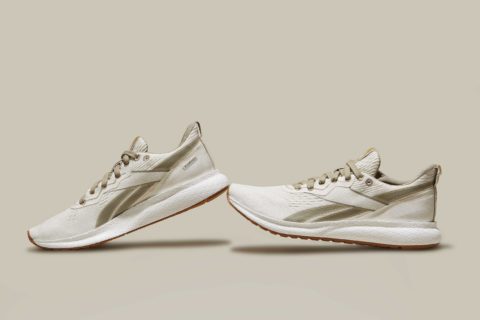Introduction:
Sustainability is no longer a buzzword relegated to environmental activists or academics – instead it is increasingly seen as a necessity to guide modern society towards a more responsible future. Many multi-national companies have taken up the mantle of sustainability as a core mission and Reebok is no different. With their latest launch, Reebok unveils a sustainable makeover for their iconic Classic Leather shoes, marking a significant step towards green fashion. This blog post will detail how Reebok’s Classic Leather shoes have undergone a transparent and eco-friendly revival and what steps the company is taking to create a sustainable future for the fashion industry.
What is Reebok’s Classic Leather and what sustainability changes have they made?
The Classic Leather shoes are Reebok’s iconic running shoes, dating back to the 1980s. The shoes have a sleek and simple design, but the insoles and outsoles were not as sustainable as they could have been. The new Classic Leather shoes, however, are a paradigm of sustainability. The shoelaces are made out of 100% recycled materials while the insoles are made of recycled foam. The outsoles are crafted from natural rubber, which is sourced through sustainable cultivation ethics that reduce environmental impact and promote social welfare globally. The entire upper part of the shoe is made of natural fibers (both cotton and linen), which were created with ecological and social certification according to the Global Organic Textile Standard. The process of making these materials is highly transparent, which builds trust with the consumer.
What inspiration drove Reebok to undertake a sustainable makeover?
Reebok’s Creative Director, Kerby Jean-Raymond, said that he wanted to initiate a “partnership with the planet,” meaning that he wanted to create clothing that was not only beautiful but also had a lower carbon footprint. Significant efforts were also made to guarantee that only environmentally friendly production processes and materials were used. This openness and honesty creates a relatable connection with customers while also fulfilling the responsibility expected from large fashion brands in today’s socio-economic environment.
What impact will Reebok’s Classic Leather sustainable makeover have on the fashion industry?
The fashion industry has long been one of the most polluting sectors globally, but there exist various initiatives to change that. And one of the main initiatives that can disrupt the fashion industry would be making sustainable products mainstream. In this regard, Reebok’s sustainable Classic Leather brings a fresh take on traditional products with a unique design, eco-friendly raw materials, the transparency that builds trust and partnership with customers, and an affordable price point. The revival of iconic designs using sustainable materials and processes demonstrate an exacting shift in consumers’ preference for environment-friendly products, which ultimately will influence fellow brands to take their own steps towards sustainability.
How is Reebok planning to continue its journey towards sustainability?
It is essential to realize that sustainability is a journey, not a destination for contemporary businesses. Reebok is taking its commitment to sustainability to another level as they plan to shift their supply chain to fully sustainable sources by 2030. The company intends to collaborate with local communities to boost awareness of sustainable living practices and training for their Multi-material Purposeful Design teams to become better specialists in ethical sourcing and production.
Conclusion:
The fashion industry has an impact on the environment as well as the communities in which they operate, and brands have a responsibility to prioritize sustainability. Reebok’s sustainable Classic Leather shoes are a prime example of how brands use their impact and influence to create a positive footprint on the environment and society. These steps taken by Reebok are significant, inspiring, and act as a guiding principle to guide other companies as they chart their sustainable future. The fashion industry must adopt sustainable practices to create a better world for their stakeholders and to save future generations from the consequences of today’s actions.